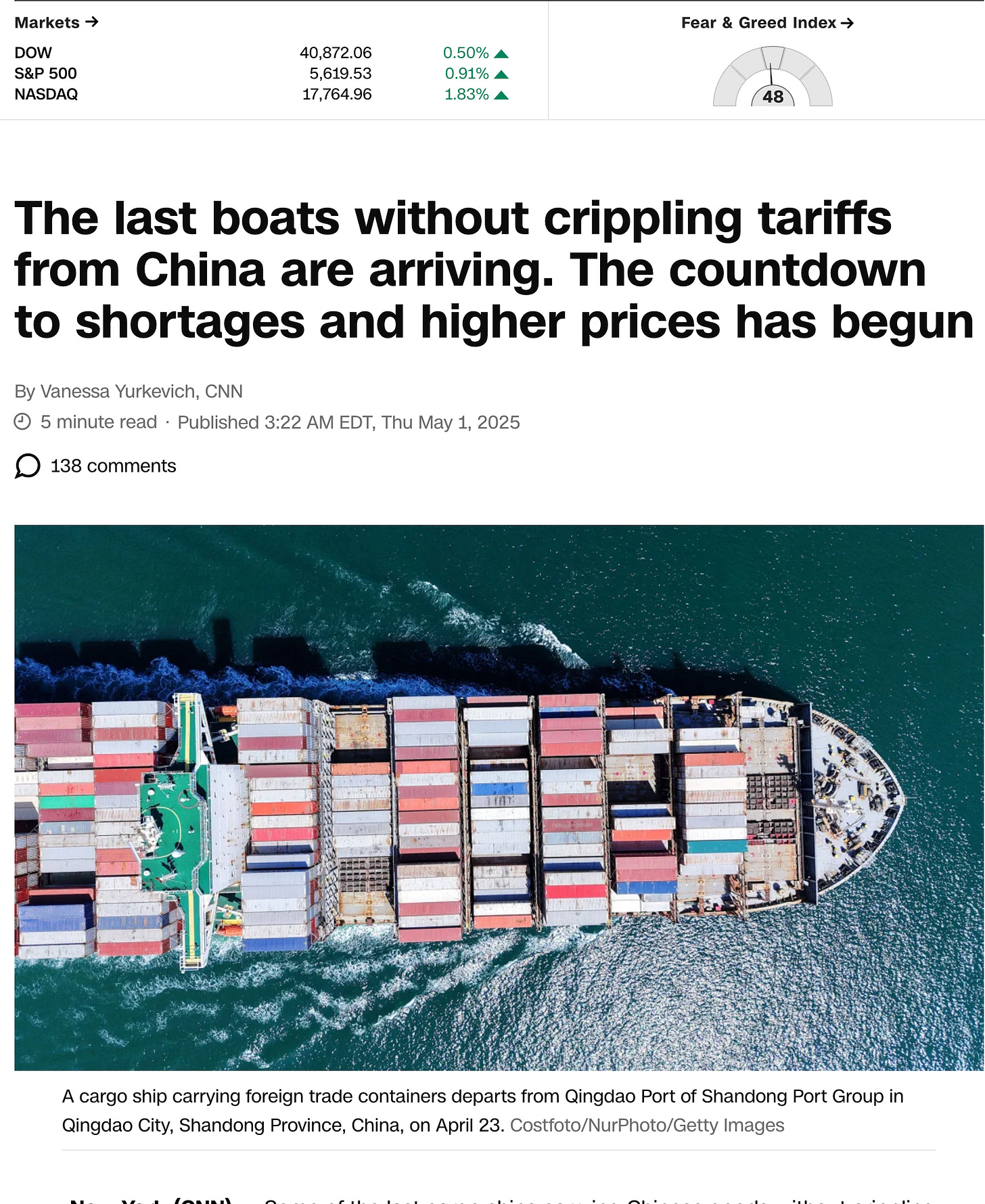Another Day, Another Tariff....
When the lead story on CNN is about Tariffs, nobody wins
Waking up this morning, I was greeted by yet another tariff article on the front page of CNN! As the global supply chain faces unprecedented challenges, companies are turning to innovative solutions to mitigate risks and maintain operational efficiency. The recent CNN article highlights the impact of new tariffs on Chinese goods, which are expected to cause significant disruptions in the U.S. market. With the last tariff-free shipments arriving, businesses are bracing for higher prices and potential shortages. This scenario underscores the importance of advanced supply chain sourcing tools like LevaData.
LevaData is a leading provider of supply chain analytics and sourcing software, designed to help companies navigate complex supply chain landscapes. By leveraging artificial intelligence and contextualized big data, LevaData enables businesses to make informed decisions, optimize procurement strategies, and reduce costs.
The Impact of Tariffs on Supply Chains
The CNN article discusses the looming impact of a 145% tariff on Chinese goods, which will significantly alter the dynamics of U.S. imports. As these tariffs take effect, importers face tough choices: either absorb the increased costs or pass them on to consumers. This situation is expected to lead to higher prices and reduced availability of essential goods, from electronics to clothing.
The article also highlights the broader implications for the supply chain, including reduced cargo volumes and idle ships at Chinese ports. These disruptions will ripple through the entire logistics network, affecting trucking, rail, and warehousing operations. For businesses, this means increased uncertainty and the need for agile, responsive supply chain strategies.
How LevaData Can Help
LevaData's platform offers a comprehensive suite of tools to address these challenges. By providing detailed supply chain analytics, LevaData helps companies gain visibility into their sourcing of parts and identify cost-saving opportunities. For instance, LevaData's spend intelligence and benchmarking capabilities allow businesses to compare their pricing against industry standards and uncover potential savings, along with comparing parts across suppliers.
In the context of the new tariffs, LevaData's insights can be invaluable. The platform can help companies assess the impact of tariffs on their supply chains and explore alternative sourcing options. By identifying suppliers in other regions or finding substitute materials, businesses can mitigate the effects of increased costs and maintain supply continuity.
Building Resilience with Data-Driven Decisions
One of the key advantages of LevaData is its ability to provide easy-to-understand ways of turning Insights into Action. This is particularly crucial in a rapidly changing environment where supply chain conditions can shift overnight. LevaData's AI-driven analytics enable companies to anticipate disruptions, evaluate risks, and make proactive decisions.
For example, if a company relies heavily on Chinese imports, LevaData can help it identify alternative suppliers in other countries, reducing dependency on a single source. Additionally, the platform's risk assessment tools can highlight potential vulnerabilities in the supply chain, allowing businesses to develop contingency plans and build resilience.
Conclusion
As the global supply chain faces new challenges, tools like LevaData are becoming essential for businesses looking to navigate uncertainty and maintain operational efficiency. The recent tariffs on Chinese goods underscore the need for advanced supply chain management solutions that can provide real-time insights and support data-driven decision-making. By leveraging LevaData's capabilities, companies can optimize their procurement strategies, reduce costs, and build a more resilient supply chain.


